Leeds & Liverpool Canal
WORKING WATERWAY
The Leeds & Liverpool Canal, at 127.25 in length, is the longest canal in Britain. As it crosses the Pennines it reaches Foulridge at its highest level of 487.5 feet above sea level. To complete the journey from Liverpool to Leeds it is necessary to negotiate 91 or 92 locks. That depends whether the two shallow ones at Appley Bridge are used or the single deep lock there. The original route was changed to accommodate the merchants of Lancashire.
It carried a wide range of goods including coal, wool, cotton, grain, machinery, cement, stone, groceries, and beer and spirits. Passengers were also carried but this ceased by the 1840s when railways proved more efficient.
Local directories gave details of the canal’s operation.
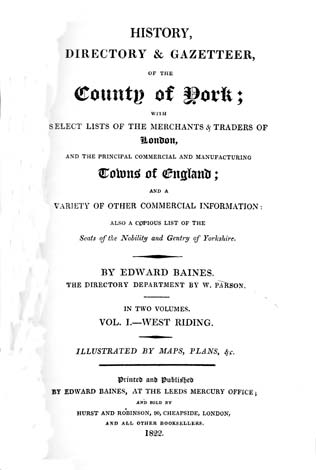
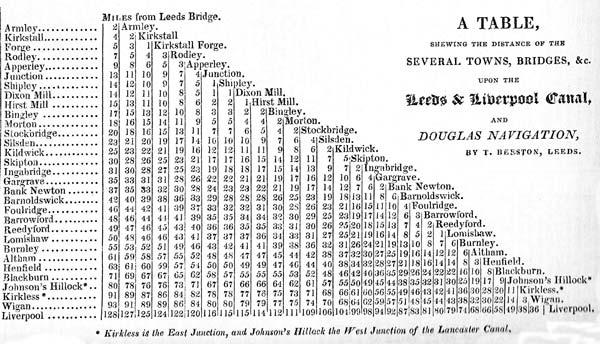
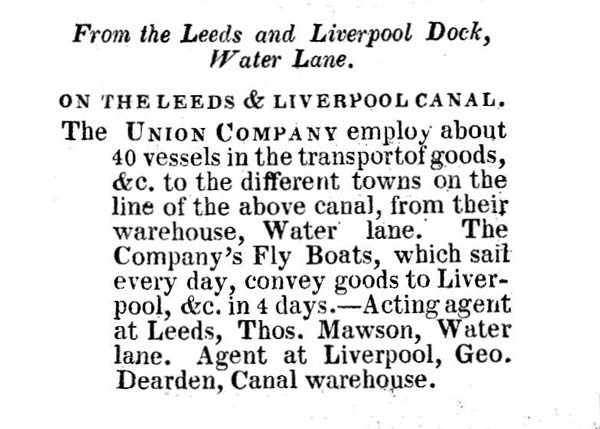
Passengers were carried on the waterway and in 1835 Sir George Head described such a journey.
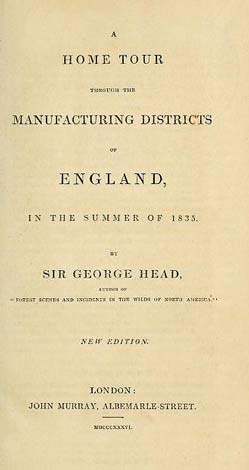
This packet-boat starts from Manchester at six o’clock every morning .. There are several links by the way; and the time spent from Manchester to Liverpool was fourteen hours. There are certainly no wonders on the route ... a heavy sameness naturally arises out ... of moving on a level ... Our boat was narrow; the two cabins were independent of each other. The platform at the top ... was common property, resorted to by all.
Breakfast and dinner were provided on board at one shilling each meal ... At dinner we had a salted sirloin of beef, with ... fried onions; and afterwards ... radishes and lettuces, together with a good mild cheese ... The voyage seemed ... long, particularly while we waited for half-an-hour for the purpose of loading and unloading at the town of Wigan. Here the “compound of villanous smells” was past all endurance ... Nothing can surpass the untidiness and filth of this warm nook, where the boats are made fast to the shore ... We had on board what is usually called a “mixture of company”, the second cabin being quite as full as it could hold. In spite of the perfect safety of this kind of travel, we were very near meeting with two serous accidents on the voyage. A woman contrived to pitch herself ... off the top of the platform, where she was sitting, down upon the deck. She fell with such violence that I really thought she must have been killed. As it was she was not hurt, and as I picked her up, she sent forth a sigh, which smelt ... strongly of rum ... The other adventure was that of a quiet, decent, respectable man, who ... from a cause somewhat similar, was unlucky enough, in attempting ... when the boat stopped at a village, to step on shore ... to misjudge his distance ... In one moment he was up to the neck ... He was soon pulled on deck, and stood helplessly streaming and snuffling ... he excited nobody’s pity, not even that of his wife – who, scolded him unmercifully ... when he did attempt to speak, it was in a tone that resembled the snort of a hippopotamus ...
Among the tenants of the best cabin were a ... married couple ... travelling with a little infant ... and a nursery-maid ... The lady, anxious to show to the rest of the passengers that she kept a maid-servant, kept calling her from one part of the vessel to another to give her some trifling order ... When the maid dropped asleep, the mistress immediately set her to work ... in order that she could not be idle...
On arriving at Scarisbrick Bridge, a little to the northward of Ormskirk, omnibuses and luggage-carts were waiting to carry passengers to Southport, a watering-place near the Ribble, and distant about six miles from the canal. The ground near the canal basin at Liverpool is covered with vast heaps of coal sent by the canal from Wigan. Hence, also, fly-boats depart to Crosby and other places in that direction, eight times a-day. I observed large quantities of coal ... A considerable quantity is procured at St. Helen’s, though the greater quantity comes from Wigan.
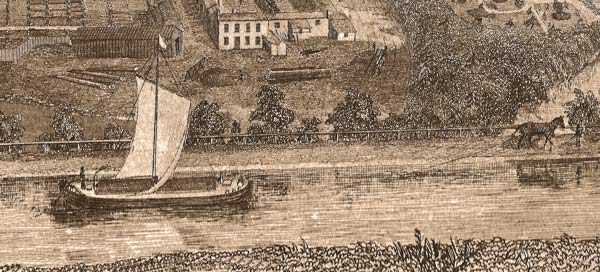
JOHN BROADBENT REMEMBERS LIFE ON THE CANAL ABOUT 1900
...the barges were - practically all - drawn by horses... but one or two tugs or steam barges... went as far as Wigan. There was also a regular Bradford fly-boat. It had 4 men on board and they never stopped. They used to get to Bradford... in about 4 days. The Wigan Fly-boat also used to go each day... loaded with cotton for Eckersley's mill...
It took a week for to get to Leeds The boats were all recorded in a Boat Book
... and if there was any special duties that they had done outside their ordinary normal work such as legging through Foulridge tunnel..then they got extra pay... ... provender was mixed at Burscough and was handed over to each particular boat as it went through to feed the horse... There were often prosecutions because the horse had to be properly looked after... They used to travel perhaps about 20 or 30 miles and then there was a change of horses and the shoulders were inspected, and if any horses had sore shoulders, then the boatmen had something to answer for.. the main part was in getting the boat started; that was when the biggest strain (was) on the horses, because after that it was more or less a steady pull... ... the boatmen the captain got 28/- per week and the mate 24/- a week; on top of which... you could make a little bit extra in legging through tunnels or doing various other odd jobs... ... when the boats were drawn by horses, the captain could live on board and the mate could live on board - each had one cabin; they did their 'length' as they used to call it and then they had a rest and the mate took over... They could cook, sleep...But when they turned over to diesel engines, the result was that one cabin had to provide accommodation for thecaptain and the mate; the result was that those who used to take their wives and their families could no longer do so. ... the Education Act... forced children to attend school regularly, ... if the boat tied up for to have part of the cargo taken off at a particular place, the children could go to school for half a day or a day according to what the time was that the boat was going to be there, and then they moved on. The result was that education was sadly neglected in those days and there were many men... when you paid them their wages, they simply put a cross to show that they had drawn the money... ... when I was up in the Skipton area, I had to go and assist at Shipley. It was a growing traffic - the wool traffic was there... wool... used to come in huge quantities because those Bradford firms used to have buyers out in Australia and South America...
EVIDENCE OF JOHN BROADBENT, A CANAL WORKER WHO WAS EMPLOYED BY THE LEEDS AND LIVERPOOL COMPANY